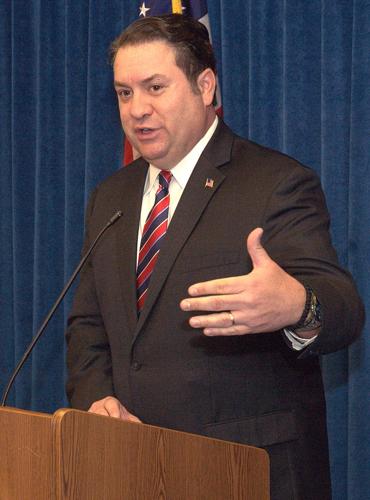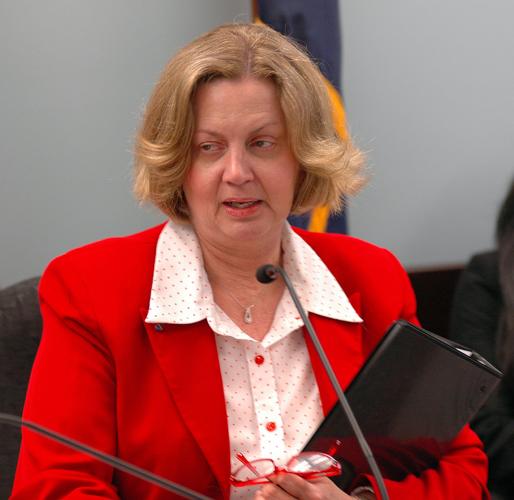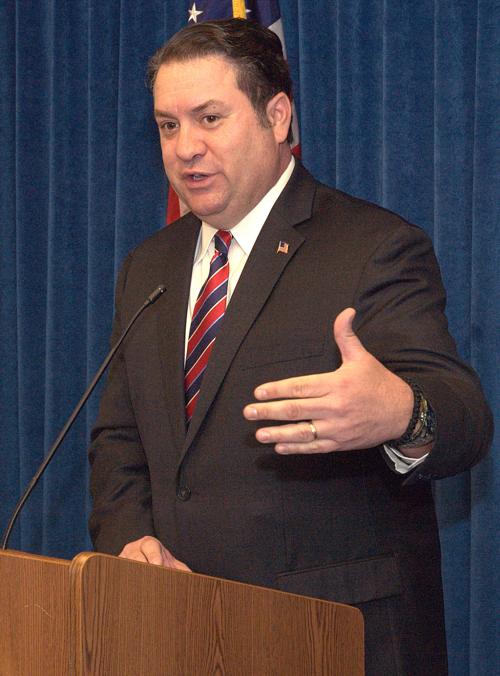PHOENIX — Saying there’s no longer any need for a ruling, Attorney General Mark Brnovich on Monday urged the state’s high court to dismiss his claim that Susan Bitter Smith was serving illegally on the Arizona Corporation Commission.
But two former commissioners, one Republican and one Democrat, disagree.
Hanging in the balance is what the justices are set to decide Tuesday, Jan. 5, about whether they want to get involved in what Brnovich claims is an effort by Bitter Smith to force the Arizona Supreme Court to issue an “advisory opinion” on the extent of state conflict-of-interest laws. The attorney general says the law is more than clear.
And in any event, Brnovich said it really doesn’t matter what the court decides. He said nothing in what the court rules — assuming it takes the case over his objections — could legally affect his ability to file future actions like the one he did against Bitter Smith, accusing her of holding office illegally.
But attorney Hugh Hallman, in his own petition, told the justices they have an obligation to weigh in to decide what is and is not legal. More to the point, he contends that what the justices decide will affect future actions by Brnovich and those who follow him.
“Sitting and future commissioners deserve to have established clearly by this court what is legally acceptable and what will be challenged by the attorney general,” Hallman wrote.
At least one of his clients has a definite interest in knowing where the line is between what’s legal and what’s not.
Bill Mundell was elected to the commission as a Republican in 1998 and served for a decade as a Republican. He now is weighing a new bid for the panel.
And Hallman said that Mundell and Democrat Renz Jennings, who served slightly more than 14 years, believe the law on conflicts is not quite as clear as Brnovich makes it out to be. Hallman said that’s particularly true when the dispute involves not working directly for or with companies regulated by the commission but instead their unregulated affiliates.
“That experience uniquely positions them to ask this court to proceed to clarify the interpretation of (the law) so that current sitting commissioners and those who fill the position in the future ... understand the ground rules governing their private affairs,” Hallman wrote. And he said that includes Andy Tobin, appointed by Gov. Doug Ducey to replace Bitter Smith.
The law Brnovich used to challenge Bitter Smith prohibits commissioners from being “in the employ of, or holding an official relation to a corporation or person subject to regulation by the commission.” It also has a similar prohibition against those who are “pecuniarily interested” in such a company.
Brnovich said Bitter Smith’s position as a lobbyist for Cox Communications qualified because an affiliate offers phone service. And he said her $156,000-a-year job as head of the Arizona Cable Communications Association was a pecuniary interest because some of the organization’s members also provide commission-regulated phone service.
Bitter Smith denied the allegations, but resigned Monday. Brnovich said that should end the case.
He also rebuffed a contention by Ed Novak, her lawyer, who said she was effectively forced from office, a move that denied voters their choice for utility regulator.
“No one deprived Ms. Bitter Smith of office,” the attorney general’s legal brief reads. “She voluntarily resigned and mooted this case.”
Hallman told Capitol Media Services that Jennings, Mundell and Barbara Sherman, an unsuccessful commission candidate from years ago, are neither agreeing nor disagreeing with Bitter Smith about whether she broke the law. But he said the law is not as clear as either Brnovich or Bitter Smith contend.
“We’ve got some significant uncertainty regarding now how the statute in play should be read,” Hallman said.
He said it’s clear that commissioners cannot work for regulated utilities. But what is not clear, said Hallman, is how many degrees of separation are necessary from a regulated company before doing work for an affiliate is no longer a conflict.







